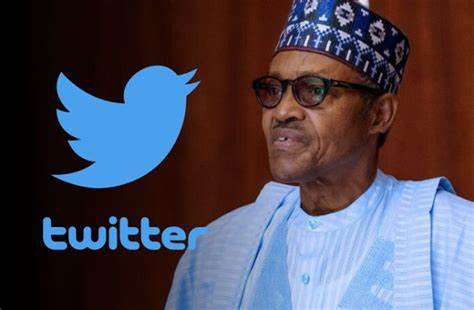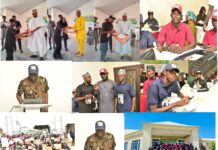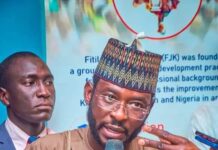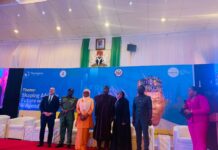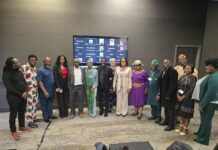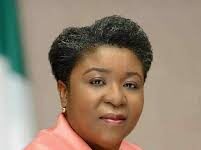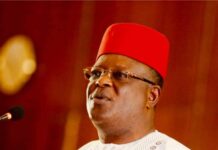A Take On Twitter The Twister Of Reality, by Salisu Na’inna Dambatta
POLITICS DIGEST – As the federal government named a team that will dialogue with the proprietors of Twitter, hired lobbyists, sundry writers and some newspaper columnists are at work trying in varied degrees to cajole, push or intimidate the Federal Government of Nigeria to unconditionally lift the suspension on Twitter operations in the country.
Others have gone beyond that to seek ways to circumbent the ban by using other, unreliable and risky methods, to keep twitting, thereby putting the commercial interest of Twitter Incorporated above the wellbeing of their own country.
The lobbyists and agents of Twitter argued that, Nigerian enterprises that market whatever they trade in on Twitter, are suffering.
But the lobbyists deliberately refused to juxtapose their claims with the fact that countless businesses and families suffered all over Nigeria when Twitter was used to fuel riots that led to arson, murders and looting.
To refresh our memories, the Minister of Information and Culture, Lai Mohammed, Sa’id at a press conference that “If you ask people to donate money via bitcoins for EndSARS protesters then you are vicariously liable for whatever is the outcome of the protest.”
He further observed that some Nigerians “have forgotten that EndSARS led to the loss of lives, including 37 policemen, six soldiers, 57 civilians while property worth billions of naira were destroyed.”
The Minister further recalled that, “164 police vehicles and 134 police stations were razed to the ground, 265 private corporate organisation were looted while 243 public property were looted. Also 81 warehouses were looted while over 200 brand new buses bought by Lagos State Government were burnt to ashes.’’
Yet, Twitter is still a good business partner for the lobbyists. This is a strange logic, especially as it came to light that Twitter went to the extent of designing a logo for the EndSarsers.
The lobbyists in hiding the shortcomings of Twitter and its methods of encouraging the distribution of messages capable of causing disorder in countries, do not remind their Nigerian audiences that Twitter was the principal nurturer of the riots in Washington DC, that led to the invasion of the American equivalent of our National Assembly building, the Capitol, which sits directly opposite the White House. And like during the EndSars riots it triggered in Nigeria by dessiminating hate speeches, life was lost during that fracas in Washington DC.
Read Also:
While the lobbyists are at their noisy best, the offending Twitter that twists issues to create an atmosphere that justifies riotous situations in societies, has come back to its senses by stealthily reaching out to the authorities in Nigeria to negotiate lifting the suspension.
The move by Twitter to approach the Nigerian authorities implies that it agreed that it has erred and caused offence by denying equitable freedom of expression to both sides of any issue. In its standard duplicitous way, it is free speech to call for the killing of Innocent citizens and destruction of countries; but voices of caution against that bloody path are denied space on the pages of Twitter. This is one of countless ways of twisting issues by Twitter to fit its intents. This led many to conclude that Twitter has ulterior motives against our country which backfired.
Fortunately for the Federal Government of Nigeria, our country is not alone or the first to pick holes and bias in the way Twitter and several of its sister social networking sites twist issues in countries around the world.
Indeed, a simple research has indicated that Twitter along with several other social networking sites have been suspended, heavily-fined, banned or blocked in at least 66 countries for various infractions, especially fanning the embers of ethnic hatred, instigating political violance or inciting serious religious conflicts.
Example of European countries that at one time or the other objected to the activities of the social networking sites or fined them include Germany, France, Russia and the United Kingdom.
On the African continent where these social networking sites disseminate messages making references to countries as failed nations, fragile states, conflict zones or ungoverned territories, more than 10 African countries have objected to their ways before Nigeria did. Egypt, Mozambique, Tanzania, Uganda, Ethiopia and were among them.
In Asia, China, India, Pakistan, Iran, Syria North Korea, Afghanistan, the United Arab Emirates and Qatar, had strong reasons at one time or the other, to take steps against the offending social networking sites to protect their national interests as they defined them.
While the citizens of those countries rallied behind their governments despite the inconveniences caused by stopping or suspending the social networking sites, in Nigeria our supposed intellectuals, “legal luminaries” and those in politics for anything other than nation building, were talking down the government that is discharging its responsibility of safeguarding public safety.
None of them saw the need for encouraging talented Nigerians to see the suspension of Twitter as a chance for them to develop an application that can service whatever needs Twitter meets, or provide even better service, without causing harm to Nigeria. No one should be blamed if discerning Nigerians include such important personalities among those who threw patriotism to the dogs.
Salisu N. Dambatta writes from Kano

